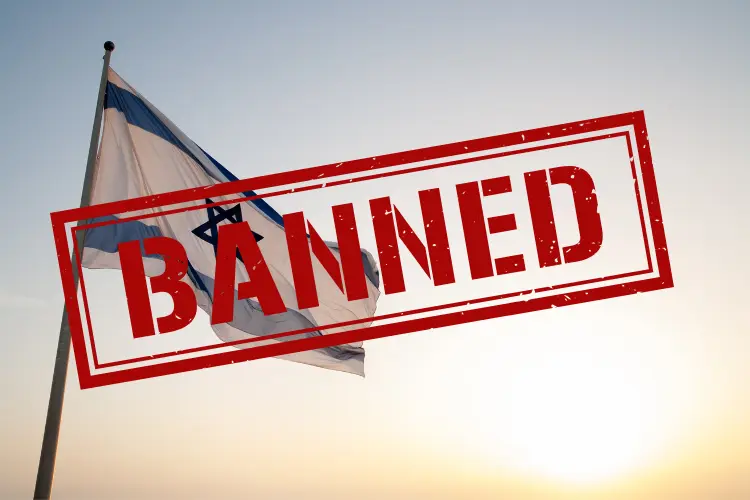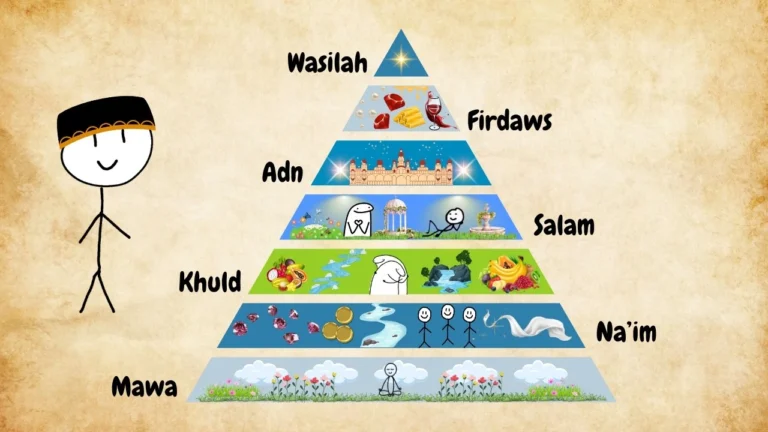The Power of Number Seven | Quran Verse 87, Chapter 15

What’s the significance of the number seven and why are seven repetitions mentioned in the Quran?
We’re gonna explore that now as part of our misunderstood Quranic verses series.
Verse 87, Chapter 15 – What Does It Mean?
And it appears in this verse, verse 87 from chapter 15, and it goes like this, or at least this is a translation:

“And We have certainly given you, [O Muhammad], seven of the oft-repeated [verses] and the great Qur’an”
So, what is this verse referring to when it talks about seven of the repetitions?
Classical Understanding and the Opening Chapter
Yeah, it’s interesting and the classical commentaries…
“We have given you…”
So, I would say seven from among the repeated things, from among the repetitions.
“We have given you seven from among the repetitions and the Grand Quran.”
The Grand Quran, we know. Quran, the Great Quran, al-Quran al-‘Adheem, right?
But what is the seven? And it seems to be distinct from the Quran.
Surah Al-Fatihah – The Seven Repeated Verses
But classical Muslim commentators on the Quran generally gravitated to saying that, among many suggestions that are offered,
“Okay, the Surah Al-Fatihah,” that is the opening chapter of the Quran, which by the way, we should have another segment dealing with this.
It mirrors, and only recently did I come to realize this, it mirrors what is called The Lord’s Prayer in the New Testament, where Jesus taught his followers to pray like this,
“Our Father who art in heaven, hallowed be thy name,” and so on.
The distinction is that in the Quran, God is referred to as… “The Lord of the Worlds.” (Mafhoom).
Why “Oft-Repeated”?
So, for the moment, the Surah Al-Fatihah, the opening chapter of the Quran is one of 114 chapters, and it consists of only seven verses.
And why does it say “oft repeated”? Because Surah Al-Fatihah is repeated by Muslims a lot.
In our daily prayers, we recite this Surah plus another Surah in every rak’at of the loud… Every loud recited rak’at of the prayers. And even in our private devotions, you know, each rak’at needs the Surah Al-Fatihah for it to be valid.
So, it’s often repeated, and it is seven.
A Hadith Supporting the View
And they even have a hadith that supports this, that the prophet, peace be upon him, said that this is the As-Sab’ Al-Mathani that he taught his certain companion.
But what is evident here is that after the Quran, you know, is preserved in writing, people are studying it, they’re thinking about it.
The prophet, peace be upon him, is no longer around, so you could ask him directly. And people are coming up with various suggestions
and some of these suggestions are linked back to the prophet Muhammad, peace be upon him, as people start to remember that he said something like this.
Read Also: Can Muslims Celebrate Thanksgiving?
Still a Mystery?
But if the prophet, peace be upon him, had made it very clear from the start, it’s hardly likely that the Muslim commentators would still be puzzled over it, and it remains a puzzle.
But what is interesting is that the number seven in the Quran seems to be highlighted for its own right, you know, as a number of importance.
Religious Significance of Seven
And we know that in religious history, seven has had great significance.
- In the Bible, for example, a lot of things turn out to be in sevens.
- In the Book of Revelation, the last book of the Bible, there are seven spirits before God’s throne.
- And that’s only one example of the many things that turn out to be sevens or multiples of seven.
Patterns of Seven in the Quran
Now, coming to the Quran and the Surah Al-Fatihah, actually, yes, consists of seven verses, but one can go more deeply into the Quran and see that seven plays out in many different ways.
There are 28 letters of the Arabic alphabet. And this is in contrast, you know… An alphabet can have any number of letters. The English alphabet has 26, the Greek alphabet has 24, the Hebrew alphabet has 22 letters.
So, Arabic has 28 and it so happens that 28 is a product of seven, is seven times four.
Mentions of Seven in the Quran
If we look at the mentions of seven in the Quran, the three letter root (indistinct)…
So, this three letter root occurs 28 times throughout the Quran. So again, it’s the seven times four.
Disjointed Letters and the Power of Numbers
There are… At the beginning of some chapters of the Quran,
what we call Al-Huruf Muqatta’at, the disjointed letters.
They don’t indicate any words, they’re just like alphabets, like acronyms, and nobody knows what exactly they mean.
What is interesting is that there are 14 different patterns that are found among these various Surahs that have these disjointed letters, which is a product of seven, is seven times two.
And if one asks, “Well, how many letters of the Arabic alphabet are used in constructing these patterns?” There are 14 letters, which is, again, seven times two.
Beginning and End of Seven in the Quran
Now, if we look at where seven is mentioned in the Quran, that too is interesting. We said that there are 28 mentions of seven.
- The first mention is in Surah Al-Baqarah, the second chapter of the Quran.
- The last mention is in the 78th chapter, which is Surah An-Naba.
So, if you think about this block of chapters from 2 to 78, it’s really 78 minus one. So it’s 77, and 77 is a product of seven, it is seven times 11.
Verse Numbers and Hidden Patterns
Now, if you look at the specific verses where the first and last mention of seven is found…
- So, in Surah Al-Baqarah it is in the 29th verse.
- And in Surah An-Naba it’s in the 12th verse.
Now, at first glance, there seems to be no correlation between 29 and 12. But, you know, in this Surah it is in the 29th verse, in that Surah, it’s in the 12th verse.
Until you realize that Surah An-Naba, the 70th chapter, in which the number seven occurs in the 12th verse, has a total of 40 verses, which means that after the mention of seven, there’s another 28 verses following, which is the seven times four that we’ve been talking about, 28 letters of the Arabic alphabet.
Pre-Planned Divine Structure?
Now, go back to Surah Al-Baqarah, the first mention of seven is there in the 29th verse, as we mentioned. So, if you ask how many verses came before it, it is 28 verses in that Surah, which is seven times four, and 28, as we know, is the number of letters in the Arabic alphabet.
So, this would mean not only is seven so interwoven within the fabric of the Quran in a way that it’s hard to imagine that any human being planned this. Especially when the Quran was revealed and recited orally.
How did anyone, you know, compose all of this in their minds and give the verse numbers?
Because verse numbers actually were put in much later. The trained reciters of the Quran knew where to stop, and based on the way in which sentences were delineated, and the stops were known, eventually the verse numbers were written into the written copies long after the death of our prophet Muhammad, peace be upon him.
God’s Divine Arrangement
So, how did all of these numbers play out in terms of specific locations, where the number’s gonna be mentioned, the chapter numbers, the sequence of chapters, the number of the verse itself, and even down to the number of letters in the Arabic alphabet,
which would mean that God was even preparing the Arabic alphabet to receive this Quran.
So, this is deep.
And when we reflect back on the verse, it says…
“We have given you seven from among the oft repeated things and the Grand Quran.” (Mafhoom)
We can see a very important number here in the Quran that is highlighted, and on closer inspection is interwoven into the fabric of the Quranic discourse.





